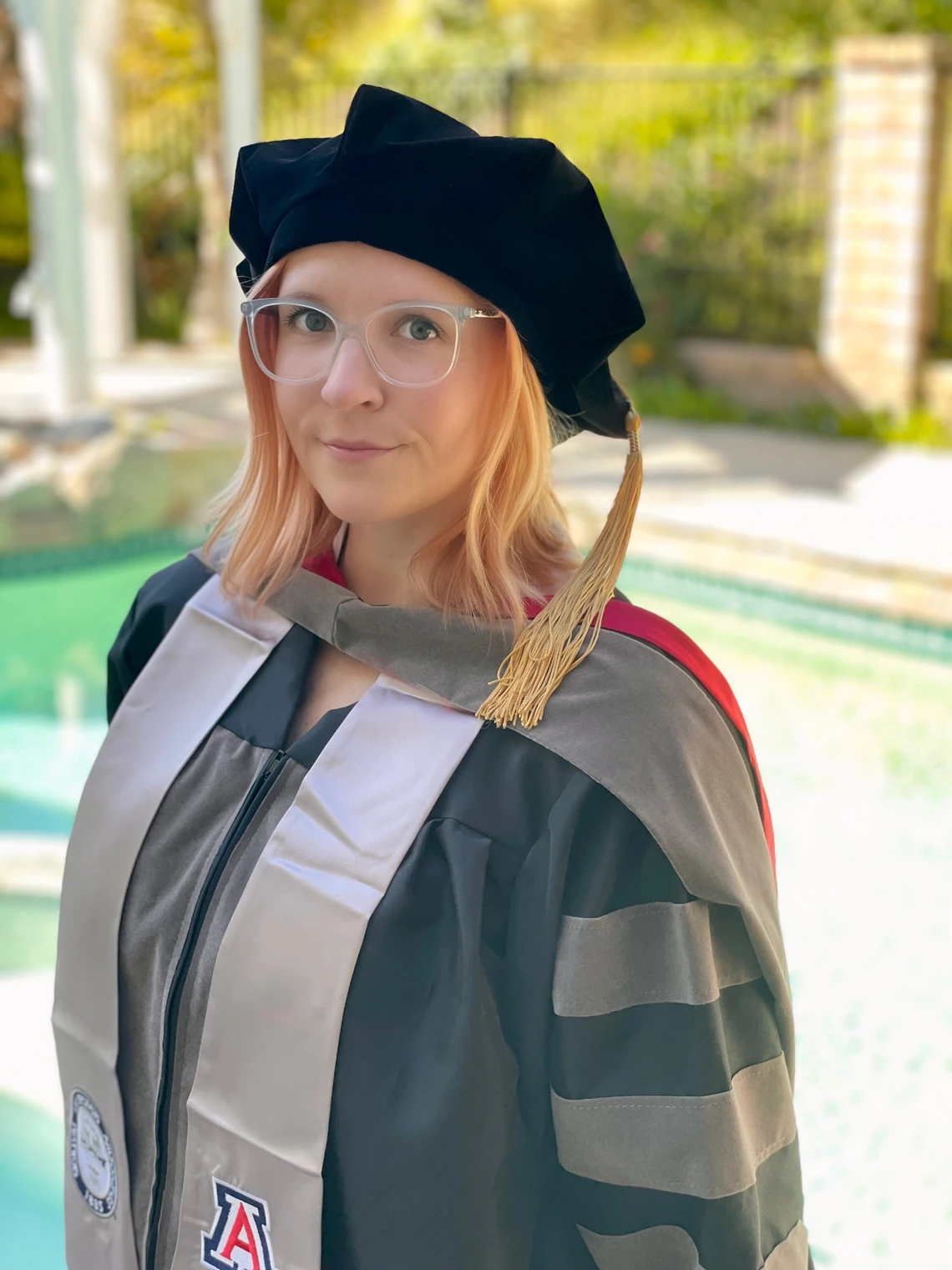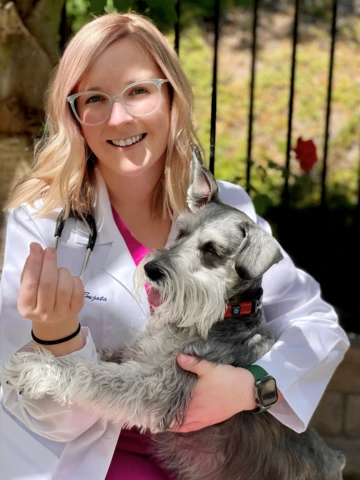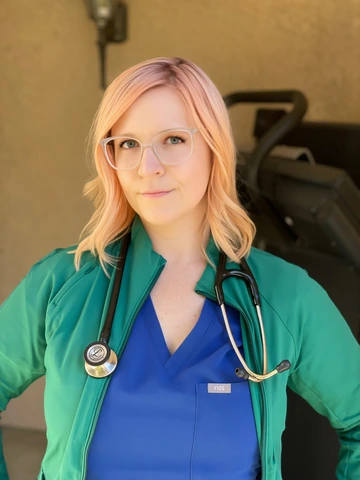VetCat Graduation Stories: Ashley Sujata
Celebrating our VetCat Journeys: Where They Are Going

As our inaugural University of Arizona College of Veterinary Medicine class prepares to graduate, third-year students are solidifying their plans. Equipped with a wealth of practical experience, hands-on training and team-based learning opportunities, VetCats are ready to embrace the next chapter of their professional lives. After three years of study, our graduating doctoral students are emerging as highly educated and exceptionally prepared candidates for the diverse array of veterinary opportunities ahead.

Graduating student Ashley Sujata is prepared to take on the challenges and learning opportunities of small animal medicine. She has been accepted to a small animal rotating internship at VCA Los Angeles, a specialty practice with over 70 doctors. After completing her internship, Ashley hopes to apply for residency in either emergency and critical care (ECC) or internal medicine. We chatted with Ashley about her educational journey and her professional goals.
Looking Ahead
Through her internship, Ashley hopes to refine her veterinary skills and become more efficient and confident. During her clinical year, Ashley enjoyed the opportunity to meet a variety of veterinary practitioners, which gave her exposure to new possibilities.
How did your experiences at Arizona shape your career plans?
AS: I think that the distributive model that UA offers for clinical year is an exciting way to explore different areas and interests of veterinary medicine while seeing realistic case presentations, clinic settings, and getting to learn something from everyone you meet along the way. Having this model allows us to focus on exploring the things that interest us, which ultimately give us a head-start into choosing the best path after graduation. I never considered internship until I spent time in specialty hospitals during clinical year and met interns, residents, and clinicians that all shared their experiences with me. Additionally, I think being in a program where you are working in teams from day one requires you to learn how to communicate effectively with other students who come from different backgrounds, experiences, and knowledge levels. Veterinary medicine is extremely collaborative and having that additional opportunity to work in groups throughout every part of our education allows us to build the foundation to communicate with colleagues throughout our career.
What will you be doing in your internship?
AS: VCA West Los Angeles currently has the 3rd largest small animal rotating internship program in the country, with over 15 different specialties and areas of practice! During this internship, I will be rotating through a variety of departments—but core rotations include: internal medicine, critical care, surgery, and ER. I will also have 11 weeks of elective time where I will be able to choose specialties I want to spend more time in. During our shifts, we are given primary case responsibility for presenting patients, as well as hospitalized patients. We have hospital rounds twice daily and continuing education is offered twice a week for interns—usually lectures, journal club, morbidity & mortality rounds, and wet labs.
As someone who is interested in exploring specialty medicine and considering the possibility of pursuing residency, I wanted to step into a position that challenged me, pushed me out of my comfort zone, and ultimately gave me the ability to gain invaluable hands-on experience in an environment that promotes learning with continual mentorship. This year will be extremely tough, but I believe that it will provide me with an enormous amount of opportunities to push myself and grow as a veterinarian, learn to practice medicine efficiently and confidently, and ultimately decide if pursuing a specialty is the right choice for me.
Advice from Ashley
Ashley shared some advice both for first-year students and for students considering pursuing an internship. She is passionate about getting the most out of learning opportunities and seeking mentorship. Team-based learning groups are rich with opportunities to develop communication skills and learn from the unique viewpoints others bring to the table. Keeping an open mind regarding opportunities was also key for Ashley. She believes these factors can make all the difference when navigating veterinary school.

What advice would you give to a first-year student?
AS: The biggest piece of advice I can give to students within this program, despite sounding cliché, is that you really do get out of the program what you’re willing to put in! This program is not a lecture-based program but rather is based on the concept of team-based learning (TBL). Your success within the program is dependent on your ability to not only learn the material, but also how well you work and collaborate with those around you. Putting egos aside and recognizing that everyone has strengths, weaknesses, and lifting up the people around you is something that will take you far—as a student but also as someone entering this profession. I think this model of learning is most like the reality of the workplace where you will need to speak up, participate, and work with people from all different backgrounds. Being a team player is absolutely essential to your success!
What advice would you give to a student pursuing an internship?
AS: I would suggest to students interested in pursuing an internship to really focus on connecting with a variety of veterinarians in different areas of practice and specialties to gain their insight into why they chose to do an internship, what qualities and traits make a successful intern, and how their internship shaped the place they’re in today. I have always been interested in people’s stories and how their choices led them to where they are today, and hearing those stories during clinical year solidified my decision to pursue an internship.
Additionally, I would suggest to students to keep an open mind about their career goals. You may be focused on a particular career path in veterinary medicine, but it’s okay to change that path as you explore the veterinary field more during the clinical year! I went into my clinical year feeling strongly about not pursuing an internship, but after being exposed to numerous experiences that changed my perspective, I ultimately chose to pursue an internship and I truly couldn’t be more excited! It’s easy to get tunnel vision with a particular area of interest before you’ve really given yourself a chance to explore other areas of veterinary medicine with an open mind. I am grateful to those I met during clinical year that shared their stories and experiences with me and provided me with a new point of view.
